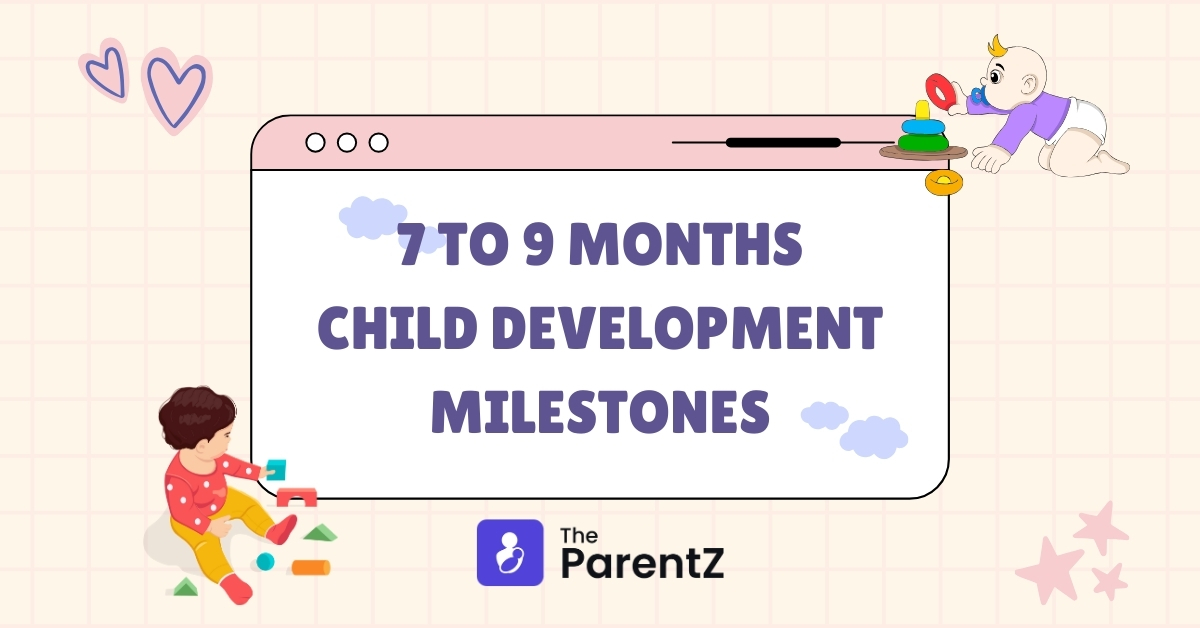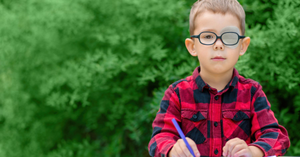The time from seven to nine months is an exciting moment for your baby. They start moving, asking questions, and talking more. They are also learning new skills and powers that will aid them in discovering and engaging with the world around them. In this post, we will examine some of the usual steps your baby might hit in this age range. We’ll also advise on how to help them grow and learn better.
Physical Development
At this age, most babies can roll over to both sides even when they’re sleeping. This means they can move more freely and switch their spot. Ensure your baby’s sleep place is safe with no loose blankets, pillows or toys that could make them choke.
Some babies can also sit by themselves at this age, while others may need a little help. Sitting lets your baby see their world better and move their hands more easily. You can help your baby learn to sit by putting them on the floor with a soft thing behind them or by holding them in your lap and slowly letting go of their hands.
Crawling is another big thing some babies in this age group might do. Babies can discover their surroundings and work out muscles by crawling. You can help your baby learn to crawl by putting toys or things not too close so they have to move, or by sitting on the floor and pretending to crawl with them. Check your home is safe for babies and get rid of any dangerous things or pointy objects that could harm them.
Some babies might also be able to stand up by holding onto furniture or other aids. This means your child is preparing to walk in the future. You can help your baby learn to stand by holding their hands and lifting them slightly, or putting them near a low table or couch where they can hold on. Make sure you’re near your baby and give them a comfy place to land if they tumble down.
Cognitive Development
In this age group, your baby’s brain growth is quickly moving forward too. Your baby is learning about cause and effect, how to solve problems, and understanding that things still exist even if they’re out of sight. Knowing that things still exist even if we can’t see them is called object permanence. You can help your baby learn to find things by playing hide-and seek games with toys, showing them pictures of familiar people or animals then covering the images. This helps babies discover hidden objects better.
Now, your baby is starting to know more about their own self and what they like. They might show signs of liking and not liking things, like smiling at their favorite toy or food. They may also cry when they see something they don’t enjoy. They might also know their own name and answer when you call it. You can help your baby learn about themselves by talking to them a lot, using their name and showing them what they look like in a mirror.
Social and Emotional Development
In this age group, your baby’s social and emotional growth is also moving forward. Your little one is getting better at showing feelings and talking. They are using sounds, and movements with their hands or body, looking happy or sad to say what they want. You might listen to your baby laugh or squeal. They may also talk in babbles and say their first words like “mama” or “dada”. You can help your baby get better at talking by always chatting to them, repeating their noises, and calling out the names of things or activities you do together.
Your baby is starting to get closer and care more about you, as well as other people they know such as brothers or sisters, grandparents, or those who look after them. They might act upset when you leave them, like crying or holding on tight to you. This is usual and shows that your baby has become close to you. To help your baby feel better about being away from you, tell them that you’ll come back soon. Then give them a big hug and kiss before leaving, plus leave their favorite toy or blanket for comfort.
On the other hand, your baby may also become more wary of strangers, such as unfamiliar people or animals. They may show signs of stranger anxiety, such as turning away, hiding their face, or crying when they see someone they don’t know. This is also normal and shows that your baby can distinguish between familiar and unfamiliar faces. You can help your baby overcome stranger anxiety by introducing them to new people gradually, staying close to them, and letting them set the pace of interaction.
Tips for Supporting Your Baby’s Development
- Give your baby different toys and games that wake up their senses. These can include things like shakers, balls, building blocks, books with pictures, music, and mirrors.
- Play with your baby every day, doing what they like. Use their interests as a guide. Play with them in their games, and copy the noises and actions they make. Also, say good things about what they do well or have achieved.
- Every day, read to your baby using colorful books that have easy words and feel different. This can help them learn new things! Look at the images, say what things they show, and ask questions about the story.
- Sing a tune to your child every day, using songs with words that rhyme and repeat. Add actions too! Help your baby get involved by clapping, tapping or making noises.
- Speak to your baby every day, using easy and understandable words. Tell what you’re doing, describe what you see, and ask questions about how they feel or think.
- Pay attention to your baby every day and watch for their signs. Listen to their noises, watch for movements, and look at their faces. Try your best to know what they are saying or showing you.
- Give respect to your baby’s unique personality and mood. Know that your baby has their own character, likes, and way of growing. Don’t compare your baby to others or push them to do things they aren’t ready for.
- Have fun with your baby every day, spending a good time together and showing them you love and care. Hug them, kiss them, snuggle with them, and say how much you care.
Conclusion
The time from 7 to 9 months is amazing for your baby because they change and grow in lots of ways. By watching what your baby can do and giving them the right help, you can make sure they grow well. It’s also a good way to enjoy fun times with them in their developmental journey. Keep in mind that each baby is special and grows at their own speed, so don’t stress if your baby goes faster or slower than others. The key is to enjoy your baby’s milestones and have fun during this special time with them.






Be the first one to comment on this story.